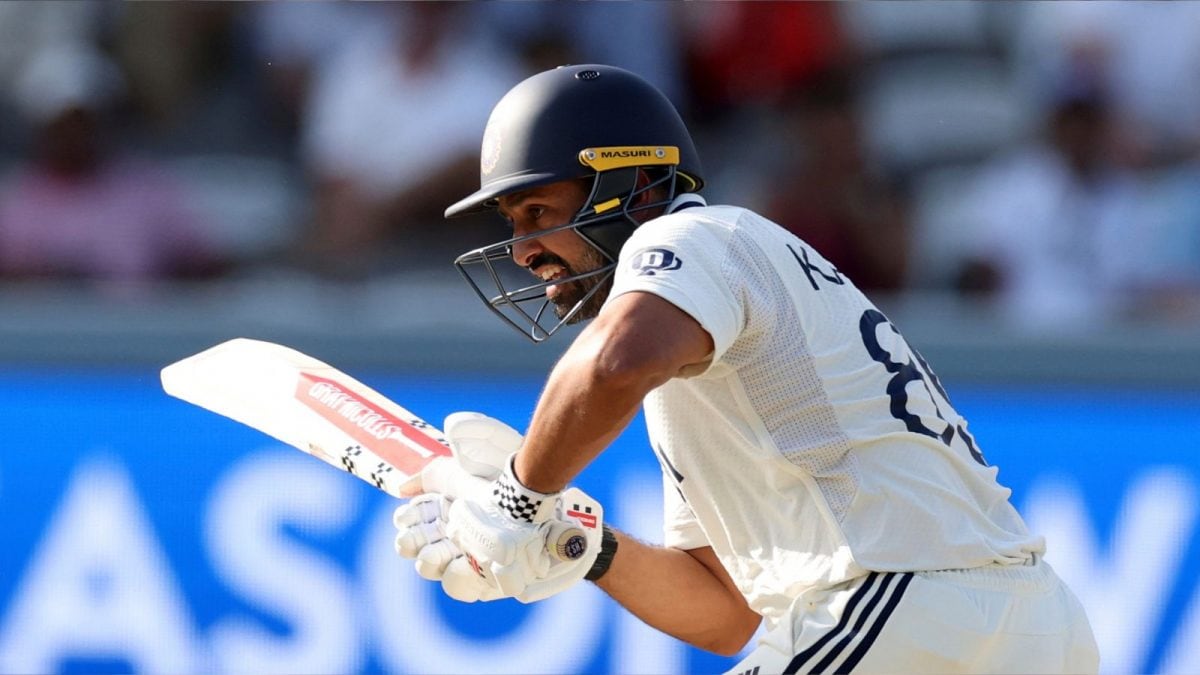Iga Swiatek steamrolls over Amanda Anisimova in 6-0., 6-0 Wimbledon victory

Open this photo in gallery: Poland's Iga Swiatek celebrates with the winner's trophy, the Venus Rosewater Dish, after winning her women's singles final tennis match against US player Amanda Anisimova.KIRILL KUDRYAVTSEV/AFP/Getty ImagesThe best thing that happened to Iga Świątek heading into Saturday’s Wimbledon final was losing earlier than usual at the French Open and having a bad season.Świątek, 24, is a four-time French Open champion, but that success had come at a cost when Wimbledon rolled around a few weeks later. She struggled with the quick turnaround from clay to grass and never managed to get beyond the quarter-finals at Wimbledon. Making things worse this year was a poor run of form that had seen her lose her world No. 1 ranking and drop as low as No. 8 last month.After she lost in the semi-finals in Paris in June, Świątek headed to Spain and then to a tournament in Germany to hone her skills on grass. The preparation could not have gone better.As top seeds fell all around her during the opening week of Wimbledon, Świątek quietly kept advancing while largely being ignored by tennis pundits who didn’t give her much of a chance of winning. By the time she came up against 23-year-old Amanda Anisimova of the U.S. on Saturday, who was playing in her first Grand Slam final, Świątek was more than ready.She steamrolled over the American 6-0, 6-0, taking less than an hour to claim her first Wimbledon title and her sixth Grand Slam victory; on clay, hardcourt, and grass.Open this photo in gallery: Poland's Iga Swiatek took less than an hour to claim her first Wimbledon title in the first “double-bagel” – a tennis term for 6-0 sets – in a Wimbledon final since 1911.Kin Cheung/The Associated PressThis was a complete demolition by the Polish player. It was the first “double-bagel” –a tennis term for 6-0 sets – in a Wimbledon final since 1911 and only the second at a Grand Slam final since the start of the Open Era in 1968 when professionals were allowed to play.The pounding left Anisimova so distraught she briefly fled the court in tears after losing the final game. “Even tough I ran out of gas a bit today and I wish I could have put in a better performance for you, you guys have been there for me and lifted me up so thank you so much,” she told the crowd.Later during a press conference, she said she’d been “frozen there with my nerves” when the match started and felt rundown from her long run at the tournament. She also tried to take some positives from the debacle.“When I got back to the locker room, I kind of had that switch in my mind of, You know what, this is probably going to make you stronger in the end and to not really dig myself down or put myself down after today and just try and focus on how I can come out stronger after this,” she said.Opinion: Wimbledon is sports’ last standing public showcase of good tasteŚwiątek tried to offer some condolences. “I want to congratulate Amanda for an amazing two weeks, no matter what happened today, you should be proud,” she told the crowd.But even she was mildly shocked at how dominant she’d been at the championships.“For sure I was surprised with the consistency. I knew I can do it before, but I don’t think I ever served so well throughout the whole three weeks even,” she said during a post-match press conference. “I’m just proud of myself because, yeah, who would have expected that?”Świątek came out swinging from the start on Saturday; literally taking practice swings and bouncing on her toes during the coin toss while Anisimova stood watching.From the opening game – a break for Świątek – it was hard to imagine that only two days earlier the American had beaten world No. 1 Aryna Sabalenka and exuded so much confidence. On Saturday, she was a shambles from her first shot, which went wide, while Świątek looked unstoppable.The first set was over in 25 minutes. Anisimova committed 14 unforced errors, landed barely one-third of her first serves, and won just nine points. Świątek crushed 80 per cent of her first serves, made two unforced errors and won 27 points.Open this photo in gallery: This was U.S.'s 23-year-old Amanda Anisimova's first Grand Slam final match.Joanna Chan/The Associated PressThe second set was more of the same with Anisimova piling up 14 more errors and winning just 25 per cent of the points on her first serve. Świątek won 71 per cent of her first serve points and she didn’t allow her opponent a single break point opportunity throughout the match.Even as the 15,000 Centre Court faithful urged Anisimova on, whatever fight she had left slowly seeped away. By the final few games, the crowd sat in stunned silence as Anisimova screamed when her shots flew wide.For Świątek the win marks something of a comeback. She hadn’t won a tournament since the French Open in 2024 and she became embroiled in a doping scandal. She tested positive last August for the banned drug trimetazidine, or TMZ, which is mainly used to treat angina but can also improve endurance.Świątek successfully argued that a batch of non-prescription melatonin that she takes to help with jet lagged had been contaminated by TMZ. Lab tests backed up her argument and she was given a one-month ban by the International Tennis Integrity Agency.But the poor performances and the ban clearly took a toll, physically and emotionally. After Saturday’s win she couldn’t help but lash out at the media, and Polish reporters in particular, for their coverage of her troubles. “I hope they will just leave me alone and let me do my job because obviously you can see that we know what we are doing,” she said.The early upsets at Wimbledon clearly helped her chances. One of her potential opponents, world No. 3 Jessica Pegula, lost in the first round and Anisimova took care of Sabalenka in the semi-final. Świątek didn’t face an opponent ranked in the top 15 until Anisimova who is ranked 12th.Based on Saturday’s performance, none of that mattered and she probably would have won the whole thing anyway. “I feel like tennis keeps surprising me, and I keep surprising myself,” she told reporters.











